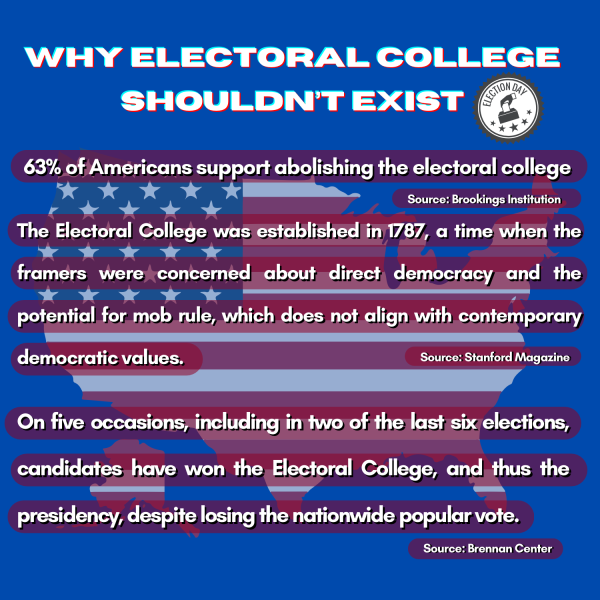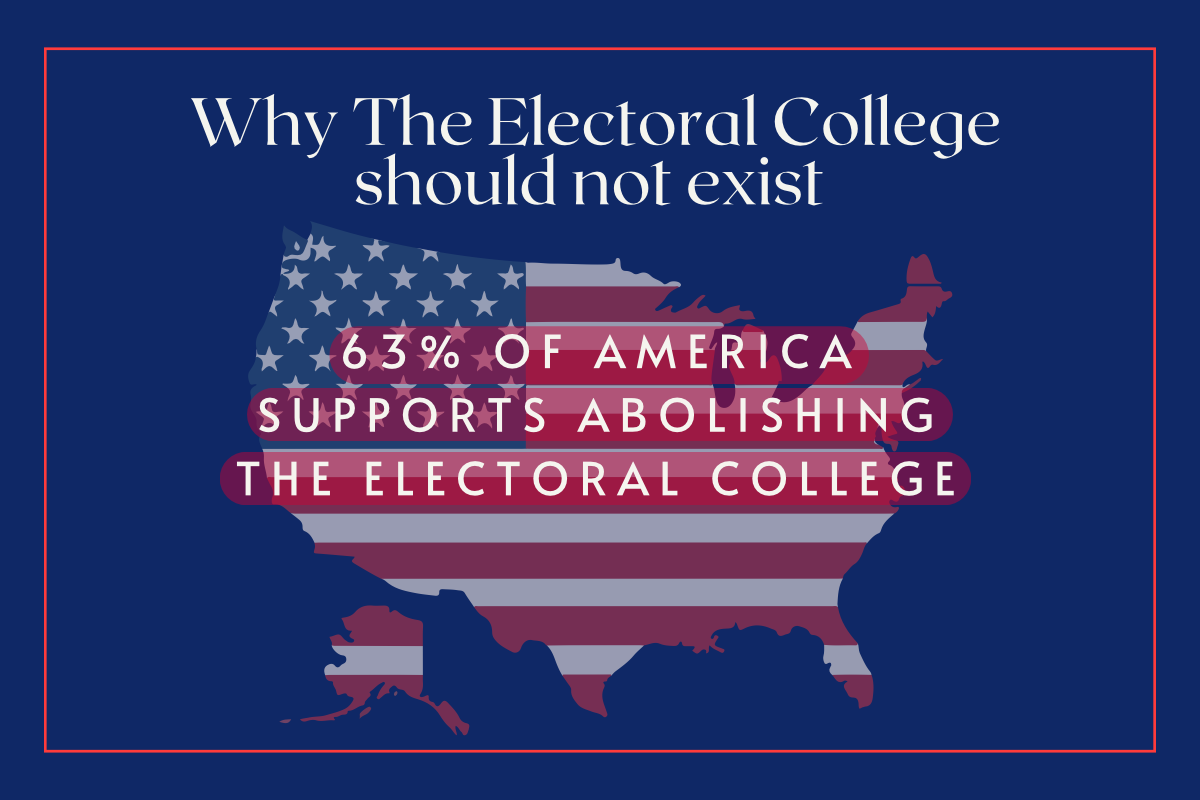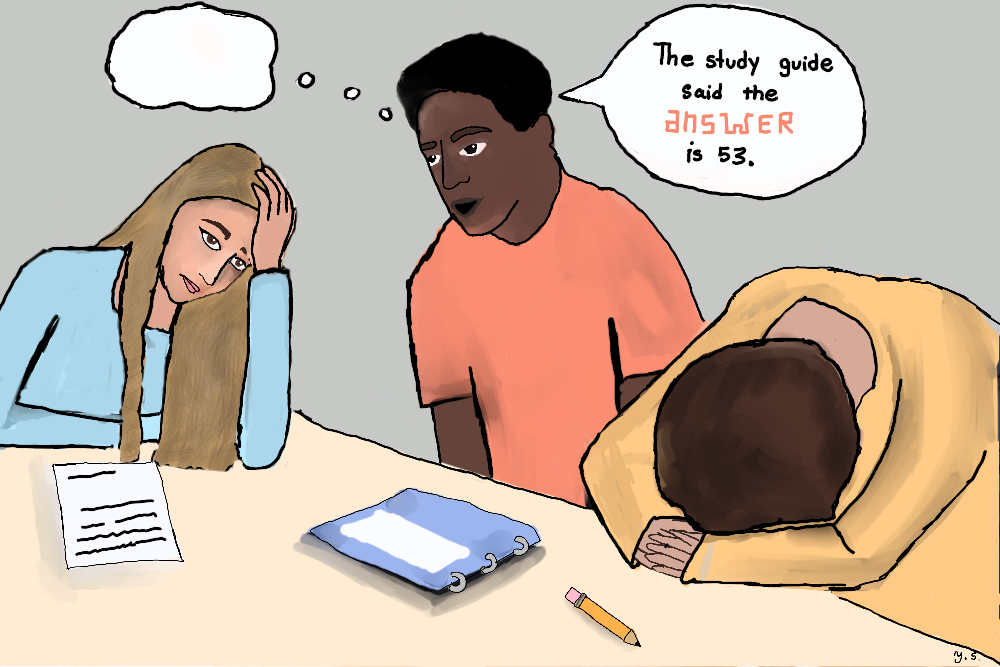One of the largest democracies in the world. That is how the United States is often described, yet when many citizens cast their ballots, they place their votes with the lingering realization their selection may not actually make a difference.
This occurs because of the Electoral College, a system distorting the democratic process and undermining the foundational principle of equal representation.
The Electoral College began as a compromise between a popular vote and congressional selection. However, many argue that the origins of the Electoral College are racist. The Electoral College has evolved into an outdated practice no longer benefiting modern democratic society.
Therefore, it is of best interest to abolish this system and embrace a more representative model for electing the nation’s leader.
One of the biggest flaws of the Electoral College is its inherent inequality.
Each state is allocated a number of electors based on its congressional representation: two for its senators and additional electors based on the number of House of Representative members; these are the people determining our elections.
This does not completely align with the values of democracy. Everyone deserves the right to have an equal say in the important decision of who becomes their next president.
During the voting season, there are many posters and pins stating, “Every Vote Matters!” but when the impacts of the Electoral College affect people, those words just become empty promises. When you analyze the situation, the true saying develops into, “Some votes matter more than the others.”
This misalignment leads to electoral outcomes that do not always reflect the will of the people.
There have been five instances in U.S. history where a candidate won the presidency, despite losing the popular vote. The most recent scenario occurred in 2016, when former President Donald Trump was elected, although Hillary Clinton received nearly 2.1% more votes.
A similar scenario occurred in 2000 when former President George W. Bush won the Electoral College, even though Al Gore had more popular votes.
These outcomes undermine public trust in the electoral system and millions of Americans who cast their ballots, feeling their voices were disregarded.

(Hannah Vipin)
In 48 states, with Maine and Nebraska having different systems, the candidate winning the most votes secures all of that state’s electoral votes, effectively underscoring the voices of the minority.
A Democrat in Texas or a Republican in California may think their vote is meaningless, especially with the prevailing political leanings of their state overshadow their choice. This system suppresses diverse political expression within states and empowers the idea that not all votes are equal.
Additionally, the Electoral College also affects electoral campaigning. Candidates focus their attention on swing states like Florida, Pennsylvania and Ohio, while safely red or blue states receive little attention. This dynamic not only diminishes the political influence of voters in non-competitive states but also skews national policy priorities. This allows solvency for only a portion of the population of the nation, while everyone else’s concerns are cast aside.
With a popular vote system, every vote across the country would count equally. Candidates would aim to win as many individual votes as possible, meaning they would need to appeal to a wide range of people everywhere.
With the Electoral College, winning swing states is more important because it gives candidates all of that state’s electoral votes. So, they focus on a few key states, while many others get less attention.
The arguments for preserving the Electoral College, such as protecting the interests of smaller states are valid, however, the protection of the smaller states cannot occur at the cost of devaluing people’s votes. If everyone gets their individual and equal voice, everyone can be equally represented and no one has to be under represented.
To remain a leading democracy in the world, the United States must commit to reform and adopt a system reflecting the will of its people. The Electoral College is an outdated system and one that should be moved past.
In an ideal democracy, every vote should carry equal weight, and the candidate with the most votes should win the election. Only then can we ensure that every vote counts and that the individual voices of the electorate are truly heard.
Follow@CHSCampusNews on X.









